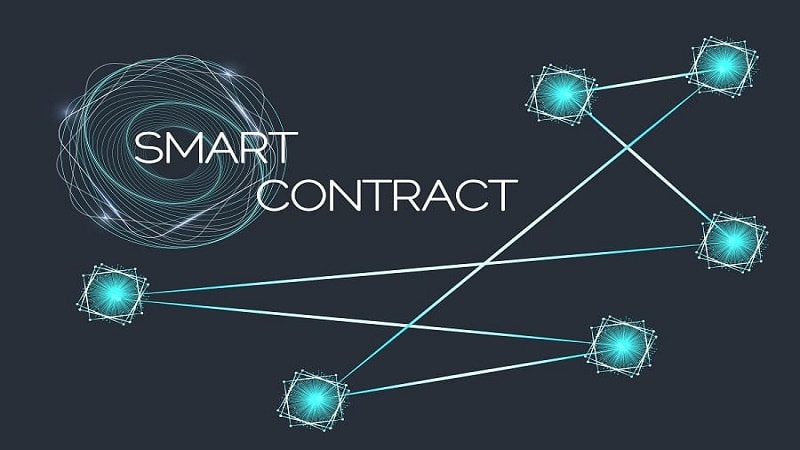
Blockchain technology has brought a transformative shift in our perception of financial transactions, data security, and trust within a decentralized framework. Central to this transformation are smart contracts, which autonomously execute agreements through code-defined terms.
Ethereum, a prominent player in the blockchain landscape, has been instrumental in the widespread adoption and evolution of smart contract technology. This article will provide an in-depth exploration of the development and deployment of Ethereum smart contracts, offering insights into the tools, standards, security protocols, practical applications, and future trends.
Get access to the most sorted and game changing investment education! Click https://immediate-eprex.org/ and connect with educational experts now!
Ethereum Ecosystem

Brief Introduction to Ethereum
Ethereum, founded by Vitalik Buterin in 2015, is a decentralized, open-source blockchain platform. Unlike Bitcoin, which primarily serves as a digital currency, Ethereum is designed for creating and executing smart contracts. It provides a versatile and robust environment for developers to build decentralized applications (DApps).
Ethereum's Role in Smart Contract Development
Ethereum's primary purpose is to facilitate the creation and execution of smart contracts. These contracts run on the Ethereum Virtual Machine (EVM), a decentralized computer that ensures code execution and data storage across the network.
Ethereum's Virtual Machine (EVM)
The EVM is the backbone of Ethereum's smart contract ecosystem. It processes transactions and executes smart contracts. Ethereum's native cryptocurrency, Ether (ETH), is used to pay for transaction fees and computational resources on the EVM.
Building Ethereum Smart Contracts
Programming Languages for Smart Contracts
Developers have a choice of programming languages for Ethereum smart contracts. Solidity, a statically typed language, is the most widely used. Vyper, another option, offers a more Python-like syntax. Developers choose the language that suits their project's requirements.
Smart Contract Development Tools and IDEs
Ethereum developers rely on a range of tools and integrated development environments (IDEs) such as Remix, Visual Studio Code with Solidity extensions, and Truffle Suite. These tools streamline the development process, providing syntax highlighting, debugging, and testing capabilities.
Writing, Compiling, and Testing Smart Contracts
Writing Ethereum smart contracts involves defining functions, state variables, and events within the code. Once written, smart contracts are compiled into bytecode, which can be executed on the EVM. Comprehensive testing, including unit testing and security audits, is critical to ensure smart contracts function as intended.
Ethereum Development Frameworks
Truffle: A Comprehensive Development Framework
Truffle is a popular development framework that simplifies smart contract development, testing, and deployment. It provides tools for automated testing, migrations, and contract management.
Hardhat: A Modern Alternative for Smart Contract Development
Hardhat has gained traction as a modern alternative to Truffle. It offers extensibility, a robust development environment, and integration with popular developer tools like TypeScript.
Comparison of Ethereum Development Frameworks
Choosing the right development framework depends on project requirements. Developers should consider factors such as community support, compatibility with other tools, and ease of use.
Ethereum Smart Contract Standards
ERC-20: The Token Standard
The ERC-20 standard defines a set of rules for creating fungible tokens on the Ethereum blockchain. These tokens have become the foundation for many decentralized applications, particularly in the realm of decentralized finance (DeFi).
ERC-721: Non-Fungible Tokens (NFTs)
ERC-721, or the Non-Fungible Token standard, has revolutionized digital ownership and provenance, enabling the creation of unique, indivisible assets like digital art, collectibles, and in-game items.
Other Ethereum Token Standards
In addition to ERC-20 and ERC-721, Ethereum supports various other token standards, each tailored to specific use cases, including ERC-1155 for multi-token contracts and ERC-777 for more advanced token functionality.
Deployment and Execution
Gas Fees: Understanding Ethereum Transaction Costs
Ethereum transactions come with gas fees, which compensate miners for executing smart contracts. Understanding gas fees and optimizing contract code is crucial to control transaction costs.
Deploying Smart Contracts on the Ethereum Network
Deploying a smart contract to the Ethereum network involves submitting a transaction that includes the contract's bytecode. Once deployed, the contract is immutable and accessible to users worldwide.
Interacting with Smart Contracts: Web3.js and Ethers.js
To interact with Ethereum smart contracts, developers use JavaScript libraries like Web3.js and Ethers.js, enabling users to send transactions, read data, and invoke functions on deployed contracts.
Best Practices and Security
Common Vulnerabilities in Smart Contracts
Smart contracts are susceptible to various vulnerabilities, including reentrancy attacks, integer overflows, and front-running. Developers must be aware of these risks and implement security best practices.
Strategies for Secure Smart Contract Development
Security-conscious development involves techniques like code reviews, automated testing, and formal verification. Auditing by specialized firms can provide an additional layer of security assurance.
Auditing and Testing Smart Contracts
Third-party security audits are a vital step in identifying and mitigating vulnerabilities in smart contracts. Auditors assess the contract's code, behavior, and security measures to ensure its integrity.
Real-World Use Cases

DeFi (Decentralized Finance) and Ethereum Smart Contracts
Ethereum's smart contracts are at the core of DeFi applications, enabling lending, borrowing, decentralized exchanges, and yield farming.
NFT Marketplaces and Tokenization
The explosion of NFTs has showcased Ethereum's ability to tokenize unique digital assets, giving rise to digital art marketplaces, collectibles.
Supply Chain Management and Smart Contracts
Smart contracts have found application in supply chain management, ensuring transparency and traceability in the movement of goods.
Future Trends and Developments
Ethereum 2.0 and its Impact on Smart Contracts
The transition to Ethereum 2.0, with its proof-of-stake consensus mechanism, promises scalability improvements that will impact the performance and cost of smart contracts.
Cross-Chain Compatibility for Smart Contracts
Interoperability between different blockchains and cross-chain smart contract compatibility is an emerging trend that will expand the use cases of Ethereum smart contracts.
Smart Contract Integration in Mainstream Industries*
As blockchain technology matures, smart contracts will see increased adoption in mainstream industries such as healthcare, real estate, and legal sectors.
Conclusion
In conclusion, Ethereum smart contracts represent a pivotal advancement in blockchain technology, offering transparency, automation, and trust in various domains. Understanding their development, deployment, and best practices is essential for harnessing the full potential of this groundbreaking technology.
As Ethereum continues to evolve and shape the decentralized future, smart contracts will remain at the forefront of innovation, enabling new possibilities and reshaping industries worldwide. Explore, innovate, and embrace the decentralized future.










